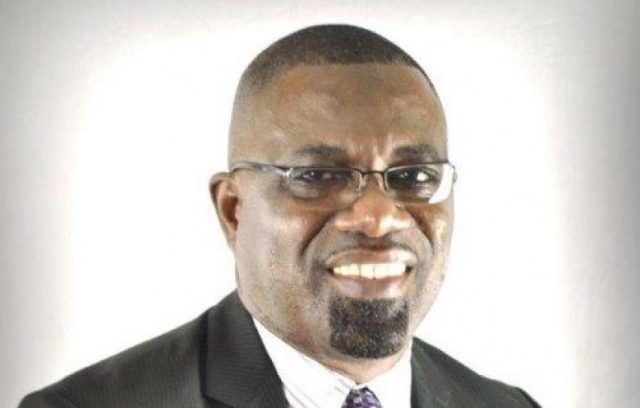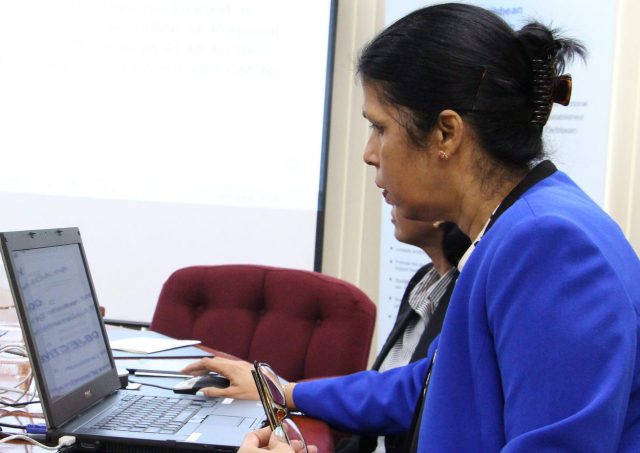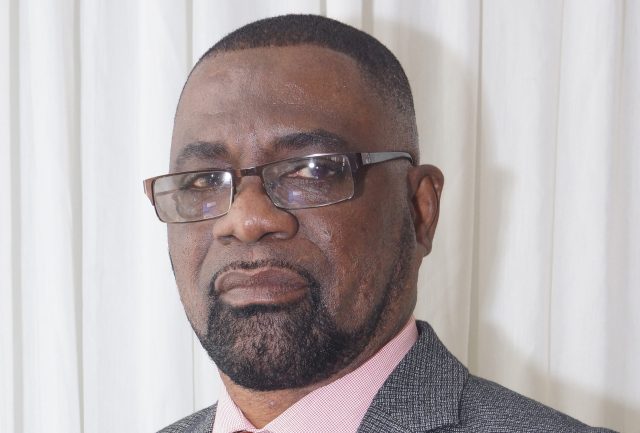Greetings and Introductory Remarks
I thank PANCAP for bringing together this powerful group of young people from so many different countries and for committing itself to training them in the art of advocacy against AIDS. This is a true Caribbean audience. I felt good vibes as soon as I entered the room. I am seeing many familiar faces and it’s almost like a family reunion. I am also happy that this meeting is taking place in Port-of-Spain so that I could renew my acquaintance with this city of which I have so many fond memories. I feel right at home in this crowd. This may have something to do with the fact that one of my sisters (her name is Tamira) was until just recently a CARICOM Youth Ambassador. She served for the maximum 3 years. She was the Vice Dean for Regional Initiatives. Tamira exposed me in the initial instance to the great work of this organisation. I am particularly proud of what you have been doing in the field of healthcare. You’ll understand my bias since I am the Minister of Health, Wellness and the Environment in my country.
As you could tell, I am a young Minister too. I am probably the youngest Health Minister in the whole entire world. I sometimes get blank stares of disbelief when I am introduced to people in this capacity. I could only imagine what might have been going through their minds: “who he trying to fool” or “how he could be Minister of Health and the milk ain’t even gone out his face yet.” I didn’t realise that youth was supposed to be a disqualification or that to be young is to be incapable. We can in fact shoulder heavy burdens of responsibility. We are called because we are strong.
The young man who owns the taxi company that brought me from the airport last night said to me that my story has encouraged him to seek to represent his country at the highest political level. I hope that I will also be able to inspire you all to a better understanding of your potential. I have a message for you today, and the message is that young people don’t only belong in youth organisations (important as they are). You can take up positions in the Cabinet and Parliament of our respective countries. You can be the owners or chief executive officers of successful private sector companies. You can be the Chief Justice or some other high ranking member of the Judiciary. And of course, you can be the driving force behind broad based civil society organisations.
Let no man despite thy youth. But be thou an example of the believers. You can do great things. Youth is not the problem of society; on the contrary we very often hold the solution to society’s problems.
There is a great cause before us – the cause of bringing an end to an epidemic that has inflicted an untold amount of grief and suffering in this world, and which has baffled scientists and researchers for many decades. This is not an easy task, but we can do it.
In addition to the CARICOM Youth Ambassadors, I know that we have here the representatives of several other important regional youth organisations that are concerned with the fight against AIDS. I recognise the presence of these various groups and associate myself with the work that you are doing to make HIV-AIDS a thing of the past. The world would be a much better place if we all just learnt to live as one, and to maintain a healthy respect for diversity and choice within the framework of our common humanity.
In talking to you about this virus and about what we must do to stop it, I want to speak straight from the heart. This is a disease that has adversely affected all of our lives in one way or another. In my case, it has claimed the life of a close member of my family. On top of that, I currently take care of a little girl whose mother recently died as a result of AIDS (an unnecessary death in this day and age). The child’s biological father is still alive, he plays no role in her life and he is HIV+. Luckily, the child was born without the virus because of the strides we have made with the elimination of the mother-to-child transmission of HIV and Syphilis.
HIV-AIDS has wrecked havoc in our societies and the world. It has destroyed families. It has robbed our nations of so many of its sons and daughters. It has therefore had a debilitating impact on regional productivity. AIDS has been like an angel of death roaming the land seeking whom it may devour. So much heartache and pain has come in its wake. I remember writing a poem about AIDS when I was a student at secondary school. I want to share this poem with you. It would give you an idea of the impressions I had of this disease from a very early age. I still have these impressions. Here goes:
A killer that silent and deadly, always on patrol
Always looking for ways to capture a soul
While knowing I’m out there when they come to play
Misguidance from friends brings them trotting my way
It’s true pleasure forever to me when you pain
With each person down the more power I gain
With the warmest of welcomes you sit in my lap
Oh too late you discover that it’s all a trap
Due time I will give you to mourn your mistake
And then I may tempt you to work for my sake
Work to take another’s life
And plunge their families into similar strife
Sweet is the sound of wailing mothers
Mourning for a fallen youth
I offer you death, something you may fear
But packaged so sweetly that you may not care
Enough is enough. We are tired of the funerals. As I said in my message for World AIDS Day last December 1st it is time for us to turn the tables on this virus, drive the final nail into its coffin and bury the disease.
At the end of the day, we have good reason to champion the cause of an AIDS-free world. We know the Statistics. I am actually a Statistician myself (among other things) by training. We know that the dreaded virus has a disproportionate effect on young people and on certain other vulnerable communities. That is why we must be resolved to stamp it out.
We have made progress against HIV-AIDS in recent years, to the point where some people are already looking at a post-AIDS world and a post-AIDS Agenda, but it would be an error to believe that we are already out of the woods. We welcome the fact that there has been a 43% reduction in new infections among adults and a 90% reduction in new infections among children between the years 2001 and 2014. There has been improvement in access to treatment and care, but we must not rest on our laurels. In the Caribbean, as of 2014, there are almost 300,000 people living with HIV and 8,800 AIDS-related deaths among adults per year. Under 45% of adults living with HIV are accessing care and treatment. There are still too many barriers to the access of prevention and care services.
This brings me to the specific focus of this meeting. We are here to discuss matters of “Sexual and Reproductive Health and HIV and AIDS” in the Caribbean. You are being prepared to be advocates. In light of this theme, there are some points which must be explicitly made. Our business is to address the social and cultural drivers of the epidemic. We are concerned with the removal of barriers to the access of sexual and reproductive health information, education and services. The disagreement between the age of consent and the age at which sexual and reproductive services can be accessed is a standing shame. Obviously, it is improper for us as a society to say that someone may legally choose to have sex at 15 years old (or whatever the age), but could only begin to have access to reproductive health services at 18. This point has been made over and over and over again.
Having said this, we must have some regard for the overwhelming evidence that early sexual initiation as well as the indulgence in risky sexual practices are main drivers in HIV transmission. It holds to reason that HIV response programmes must better cater to the needs of the young people, and that young people must let their voice be heard on this subject.
We need to acknowledge the fact that there are men who have sex with men (homosexuals), transgender individuals and sex workers in this world, and that these groups of people are especially vulnerable to this disease. This is not a moral statement. Nor is it a statement of my personal values. It is simply a statement of fact. They are people too, that we must look out for their welfare as human beings. We must also take care of people living with HIV. We need to fight with all our might against stigma, discrimination and violations of their human rights. This is a duty of our generation.
I am looking forward to you all being forceful and effective advocates. I want to see the force of your reason and logic overcome the resistance to your movement for improving the quality of life for young people and everyone else, and for the extinction of HIV-AIDS. I am sure that will be the case. Be persistent and relentless in your pursuit of this goal. Never be deterred. Let your names be written on the pages of people who through dedicated and sustained advocacy and possibly by other interventions brought an end to HIV-AIDS. You can do it and we can do it.
We will demonstrate that we are able to bring about effective and far-reaching change in our society. We can do it. We can beat this virus into submission, retreat and ultimately extermination. We can do it. We can shape policies in our own image and likeness and ensure that they protect our interests. We can do all this together. Thank you.



